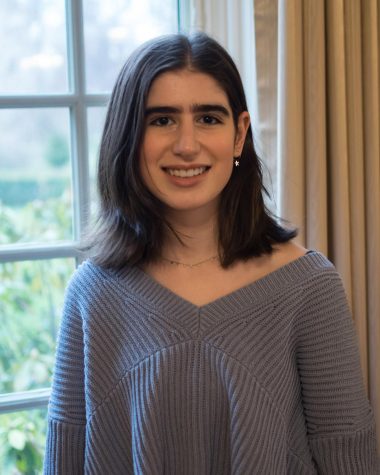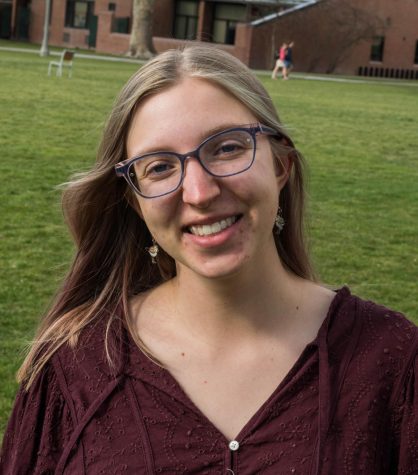Interfaith Council builds community among a largely secular student body
March 10, 2022
Despite its religious origins, today Whitman College is a non-religiously affiliated school with a largely secular student body. Founded as a seminary in 1859, Whitman maintained its religious ties until 1907, when President Penrose abandoned all religious affiliation under his Greater Whitman Initiative.
While approximately 30 percent of Whitman students report a religious or spiritual identity, those students have reported challenges with finding a community, an issue that Whitman’s new Interfaith Council strives to address.
Formed in November of 2021 by Interfaith Chaplain Adam Kirtley, the group meets once or twice a month to engage with other religious perspectives. Currently, the Council is composed of ten students representing various belief systems and class years, although the majority of members are underclassmen.
“The group meets monthly to engage in dialogue across worldviews and experiences. Interfaith Chaplain Adam Kirtley hopes the council will serve to not only foster understanding and friendship, but that it will model cross-religious cooperation in response to world events, celebrations and tragedies,” the November Division of Diversity and Inclusion newsletter stated.
First-year Jeffrey Wu, who identifies as non-traditionally spiritual, joined the Interfaith Council after attending Spirituali-Tea sessions led by Kirtley last semester. Wu was especially appreciative of Kirtley’s leadership in the Council.
“I think Adam is really great. He’s really open-minded, even though some of my ideas might be disturbing to him. He’s really accepting of what I say,” Wu said.

First-year Aliza Eaton is a member of Kehillat Shalom, Whitman’s Jewish affinity group, and was very involved with religion at home in Seattle.
“I’ve always been super interested in religion, it’s a big part of my life,” said Eaton, “Coming here, it was just natural that I would join the Jewish club. I guess I wanted to join the Interfaith Council to learn about other religions and talk about my own.”
Eaton joined the Interfaith Council after Kirtley reached out to Kehillat Shalom asking for a representative.
“You don’t really see a lot of religious people on campus, so it’s nice to be in a community where we have different religions, but we have connections just from the fact that we’ve been involved with religion,” Eaton said.

First-year Morgan Sherwood got involved with the Interfaith Council through the Universalist Unitarian Big Tent Gathering hosted by the Office of Religious and Spiritual Life, where she was invited to join the Council by Kirtley. She has enjoyed being able to discuss religion with peers her age and feels less isolated in her religious identity.
“It seemed like a good way to reconnect with [my religious identity] in a place and time when I’m not having much other opportunity to do that,” Sherwood said.
The Council also works for religious advocacy on campus—they hosted a panel at this year’s Power and Privilege Symposium. Additionally, they are working towards creating a new spirituality space on campus, as the current space in Prentiss has not been accessible to all groups. Located in the Prentiss basement, the spirituality room is open to all students as a place of worship and meeting space for campus religious groups.
“[The spirituality room in Prentiss] had a leakage or flood, and it’s already a hard room to find, it’s pretty small and it’s underground, and so we’re talking about [finding] a new space for religious or spiritual events on campus,” Eaton said.
Sherwood stated that the Interfaith Council has become a way of inspiring change and creating community for religious and spiritual students who otherwise may have few opportunities to find religious spaces at Whitman.
“Because we’re a largely secular campus, often students who hold religious identities are invisible, and that isn’t an identity that’s often shared. So [the Interfaith Council] is a way to bring people of many faiths and identities together and talk and build community,” Sherwood said.





